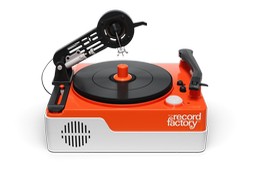Today’s dating apps rely, in part, on the illusion of agency. We can swipe through countless profiles of potential mates, choosing which ones we like or don’t like. When we match with someone we find attractive, it’s us—not the app—who maintain the option of starting a conversation (or, as is just as common, ending one). If this particular app isn’t working for us—if we aren’t having as much success as we’d like to on Bumble, for example—we can try Tinder, or Hinge, or Coffee Meets Bagel, or utilize any number of niche-ified websites, distinguishable by race or religion or circumstance, to find the type of person we think will be our “perfect match.” It’s easy for the facile agility of technology to lull us into thinking we have more control than ever before over our romantic destinies. But by yielding love, that alchemical entity, to the codified whims of dating apps and algorithms and a narrowed set of preferences, do we actually have more agency, or do we have less? And is the codification of love—the promise of a “perfect match”—actually possible, anyway?
These are a few of the questions the much-ballyhooed dating app episode in the fourth season of Black Mirror, “Hang the DJ,” attempts to answer. It opens in a setting all-too-familiar for single urbanites of a certain age: a semi-crowded restaurant where a man, Frank (Joe Cole), waits expectantly for a woman, Amy (Georgina Campbell), with whom he has been set up with via app. This being Black Mirror, though, the app is a slightly more futuristic version of ours. Shaped like a hockey puck, it functions within a broader Orwellian realm, unimaginatively called “The System,” and not only sets you up with a partner, but gives each relationship an expiration date. (It also allows you to give sexual consent, which, despite all its other flaws, isn’t such a bad or unrealistic idea.) The idea here is that the app will learn more about your romantic preferences through numerous relationships, of various durations, until it feels confident in its ability to match you with a partner for life. On their first meeting, Frank and Amy’s relationship is only 12 hours—enough to finish dinner and head back to their couples suite, a stereotypically futuristic abode with clean lines, an automatic fireplace and a solid color scheme, where they lie on the bed and hold hands until daybreak, when they part, however longingly, for new relationships with different people.
At first, Amy seems smitten by her new partner, with whom she’s been paired for nine months. He’s attractive, and they have what appears to be good sex. Frank is not so lucky. He draws an unrealistically humorless woman, whose company he must endure for a year. Frank and Amy cycle through various relationships, becoming increasingly detached, until, finally, they’re paired together again. This time, they refuse to look at their expiration date, and they fall into a blissful kind of love. Of course, one of them can’t bear to not know when their relationship is ending. Frank looks at the date one night—the relationship is meant to last five years—and his looking causes the app to recalibrate the duration to just 12 hours.
It’s only after they’ve broken up, and been informed via the app that they’ve both been paired with their respective life partners, that Frank and Amy decide to stage a rebellion, and escape “The System.” As they scale the walls, the world disappears into a Matrix-like flurry of numbers.
Aha! It turns out our star-crossed lovers were in a simulation, and, simulated a thousand times, their 1,000 simulated selves had rebelled together 998 times—a sufficient percentage for the app to determine them compatible. As these simulated selves disappear from this Matrix-like universe, the show zooms out of a phone to a bar, where real-life Frank is waiting for real-life Amy to arrive for their date. They share a somewhat knowing smile: are they cognizant of what happened in the simulation, or is love at first sight itself a sort of déjà vu?
I’ve said before that Black Mirror is like the young college professor who makes learning “cool,” and this episode is no different. It’s more a fun intellectual exercise than a genuine piece of art, exceptionally artless in its dependence on simulations—as in the popular Jon Hamm-helmed episode, “White Christmas”—both as an excuse for its dearth of characterization and as a delivery mechanism for twist endings. Yes, Black Mirror is about technology. But its reliance on Baudrillard-esque simulations is still a narrative crutch—a post-modern deus ex machina, the updated equivalent of hackneyed movies or stories that end with its protagonist waking up from a dream in a cold sweat. These snappy resolutions not only sweep the rug out from under the viewer, but, worse, justify average storytelling.
While Black Mirror typically sacrifices art in the name of a clear-eyed critique of modern technology, “Hang the DJ” appears to miss the mark here as well. The creators of the show seem to want this ending, between Frank and Amy, to come off as a somewhat happy one. And many critics have read it as such. Allison P. Davis, writing for The Cut, concludes that “the Black Mirror universe offers a dating app that’s better than anything we have in the real world.” Devon Maloney, calling the episode in Wired a “perfectly heartbreaking portrayal of modern romance,” suggests that, for single people like her, the ending “turns our misery on its head, making our growing suspicion that algorithms may never be able to ‘solve’ the perfectly human inconveniences of partnership without also eliminating human intuition and choice the solution rather than the problem—the app determines compatibility by observing our tendency toward resistance.” Sophie Gilbert, in The Atlantic, writes, “the twist leaves you pondering the ethics of creating a thousand digital people, only to erase them after they’ve fulfilled their purpose. It’s a heartwarming episode with a sting in its tail.”
This reading, especially, feels woefully beside the point. Yet all three fail to take into account the utter bleakness of the supposedly happy ending. For as soon as fake Frank and Amy wrest control back and emerge from the simulation, real Frank and Amy find themselves beholden to a similarly oppressive system: assigned their perfect match by a piece of technology, with no say-so over their romantic destinies. Indeed, the real-life version of the simulation's app, against which they so heartily resisted, appears to have codified love, if not by the same means, than with the same, cold, technological certitude. By this logic, would Frank and Amy not also end up resisting the app in real life, too, with different paramours?
Consider MTV’s bacchanalian reality show, Are You the One? Though ridiculous on the surface—let’s put ten stupid hot guys and ten stupid hot girls in a house, assign them “perfect matches” and manipulate them into figuring out who their “perfect matches” are in order to win one million dollars—the show actually offers an astute critique of the sort of compatibility myth touted by algorithmic dating sites and “Hang the DJ.” This is because the contestants on Are You the One? are so rarely drawn to their so-called “perfect matches”—at least not at first. And even when they are, it’s not like they actually end up together beyond the confines of the show, in the real world. Oddly enough, Are You the One?, despite its post-human trappings, promotes a decidedly romantic notion of love—one which cannot be codified; one which conquers all.
In the world of modern dating, there's a tendency to conflate the term “perfect match” with that of the “soul mate.” But I don't believe those two are the same thing. Certainly, people find love on dating apps, websites and the like. Which is great. And yet, if we take those apps and platforms to their natural terminus—as the creators did in “Hang the DJ”—we leave no room for the uncertainty and timing upon which love thrives. We can’t find something that’s already been located for us; to so resolutely calculate the inherently incalculable notion of love is to destroy it. And isn't the mystery, the unknown, the falling, the leap to choose to follow a feeling, the best part?
Call me a hopeless romantic, but I’ll take that over a Black Mirror-style dating app any day.






